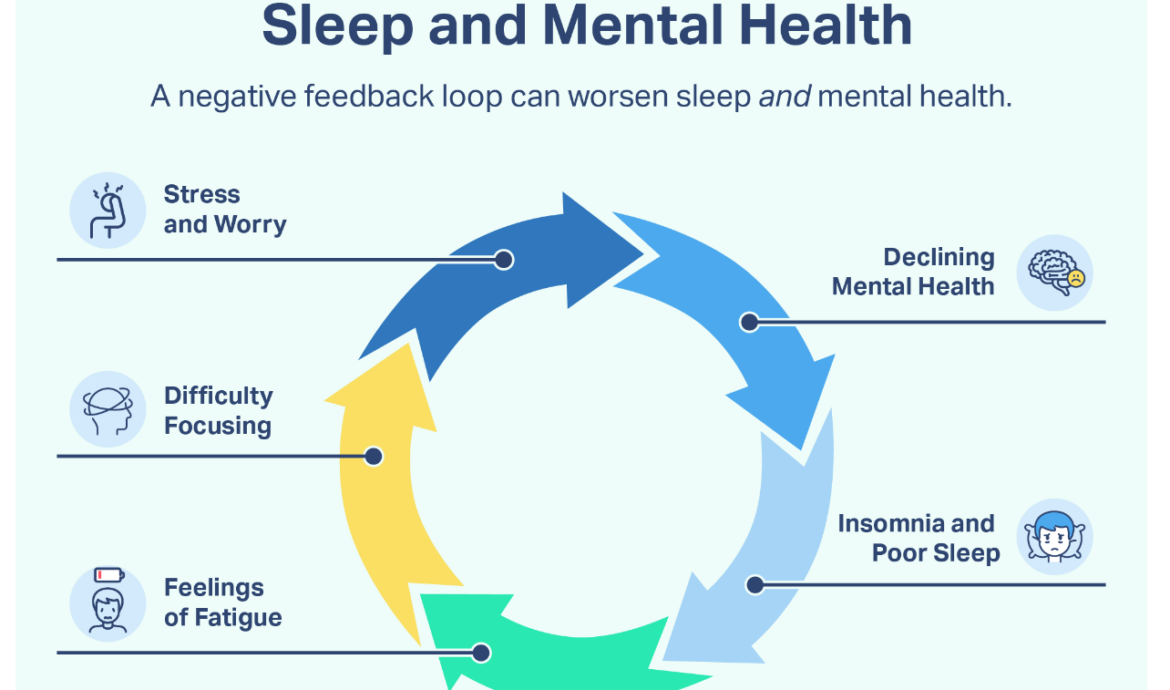Get in Bed!😴Sleep Makes you Happy
Well, sleep helps fight of depression, anxiety and the stresses of our modern world. The quest for a good night’s sleep seems more challenging than ever. Yet, the impact of sleep on our mental health is profound and often underestimated. In this post, we’ll explore the undeniable connection between restful sleep and mental well-being, and I’ll share some personal insights along the way.
The Science of Sleep and Mental Health
Did you know that sleep is as essential to our brains as food is to our bodies? During sleep, our brain processes the day’s experiences, recharges our emotional batteries, and helps regulate mood. Poor sleep can lead to increased stress, anxiety, and even depression.
Understanding the REM and Non-REM stages reveals why each phase of sleep is crucial for different brain functions, including memory consolidation and emotional processing. Specifically, Non-REM sleep, which encompasses deep sleep, is vital for physical restoration and the strengthening of neural connections related to learning and memory, while REM sleep, often associated with vivid dreaming, plays a key role in mood regulation and the processing of emotions experienced during the day.
**For more detailed information on the functions of REM and Non-REM sleep stages and their impact on our brain’s health, the National Institute of Neurological Disorders and Stroke offers comprehensive resources. Check out their ‘Brain Basics: Understanding Sleep’ page for in-depth scientific insights
Image from the Sleep Foundation.

The Consequences of Sleep Deprivation
My own battle with sleep deprivation began in the halls of Dalhousie University’s Sherriff Hall. Those nights of restless wandering and binge-watching ‘Seinfeld’ were more than just bad habits; they were red flags I overlooked. This period of sleeplessness was the start of significant mental health challenges. It taught me a vital lesson: our sleep patterns are a mirror reflecting our mental state. Ignoring them can lead to a cascade of health issues.
Tips for Better Sleep
1. Sleep by Design: Tailoring Your Nightly Routine for Optimal Rest
Consistency is key. A regular sleep schedule trains your brain to naturally feel tired and wakeful at the right times. Ensuring your bedroom is a sanctuary, reserved only for sleep, can significantly improve your sleep quality.
PRO TIP: “Reserve your bed for sleep and sweet dreams only – it’s not a lounge or a smartphone theater! Creating this clear boundary helps signal to your brain that the bed is a place for rest, not work or social media scrolling.”
2. Hush the Hustle: Mindfulness Practices for Restful Sleep
Techniques like meditation, deep breathing, or gentle yoga can help still the mind before bedtime. These practices don’t just improve sleep; they also enhance overall mental health by reducing stress and anxiety.
PRO TIP: Think of these practices as your nightly mental decluttering – they don’t just pave the way to dreamland; they also sweep away the day’s stress and anxiety. It’s like giving your mind a soothing bath before bed!”
3. Beyond Counting Sleep: Understanding Sleep Medications and Natural Remedies
While some aids like Nighty Night tea can be helpful, caution is key, especially with pharmaceutical sleep aids. Natural supplements like melatonin may also be beneficial, but it’s crucial to consult with a healthcare professional before starting any new regimen.
PRO TIP: Talk to you doctor and figure out how to use these supports as tools. Understand your own signs and symptoms to get the best use out of these extras.
4. Dimming the Digital Glow: Screen Time’s Role in Sleep Hygiene
Reducing exposure to screens before bed is crucial. The blue light emitted by devices can disrupt your natural sleep cycle. Establish a ‘no screens’ policy an hour before bedtime to help your mind unwind.
PRO TIP: When tempted to use your phone or other electronic devices, force yourself to get up and go to a chair instead. This simple change can have a significant impact on your sleep quality and help you establish a healthier bedtime routine.
When to Seek Help If your sleep struggles persist despite making lifestyle changes, it might be time to seek professional help. Persistent insomnia, frequent night awakenings, or feeling chronically tired during the day are signs you should not ignore. Seeking help is a sign of strength, not weakness.
How Much Sleep Do We Really Need?
Understanding the right amount of sleep is crucial for mental and physical health. Here’s a quick guide to the average recommended hours of sleep by age group, as suggested by the National Sleep Foundation:
- Newborns (0-3 months): 14-17 hours each day.
- Infants (4-11 months): 12-15 hours each day.
- Toddlers (1-2 years): 11-14 hours each day.
- Preschoolers (3-5 years): 10-13 hours each day.
- School-age children (6-13 years): 9-11 hours each night.
- Teenagers (14-17 years): 8-10 hours each night.
- Young Adults (18-25 years): 7-9 hours each night.
- Adults (26-64 years): 7-9 hours each night.
- Older Adults (65+ years): 7-8 hours each night.
These guidelines are widely accepted and utilized globally, including in Canada, offering a general framework for optimal rest. Remember, individual needs may vary, and it’s important to listen to your body and adjust as necessary.
For more detailed information and research behind these recommendations, visit the National Sleep Foundation.
The Final Nod
Embracing good sleep is embracing good health. My journey from those sleepless nights at Dalhousie to understanding the value of restful sleep has been transformative. I encourage you to give your sleep the attention it deserves and witness the positive impact on your overall well-being.
Your Turn: What Are Your Secrets to Restful Sleep?
What are your sleep secrets? How has improving your sleep changed your life? Share your stories and tips in the comments. Let’s learn from each other and prioritize our mental wellness through better sleep.




